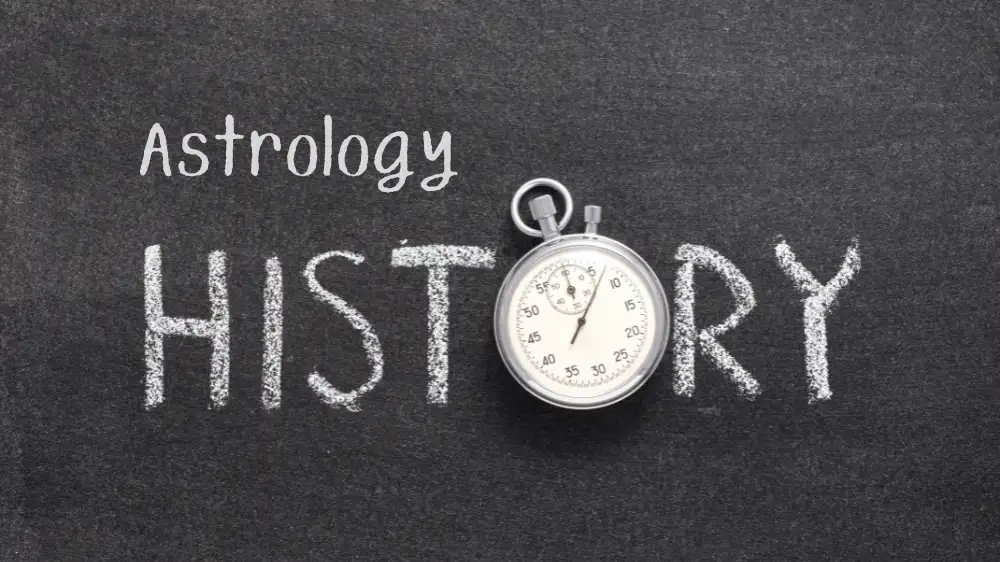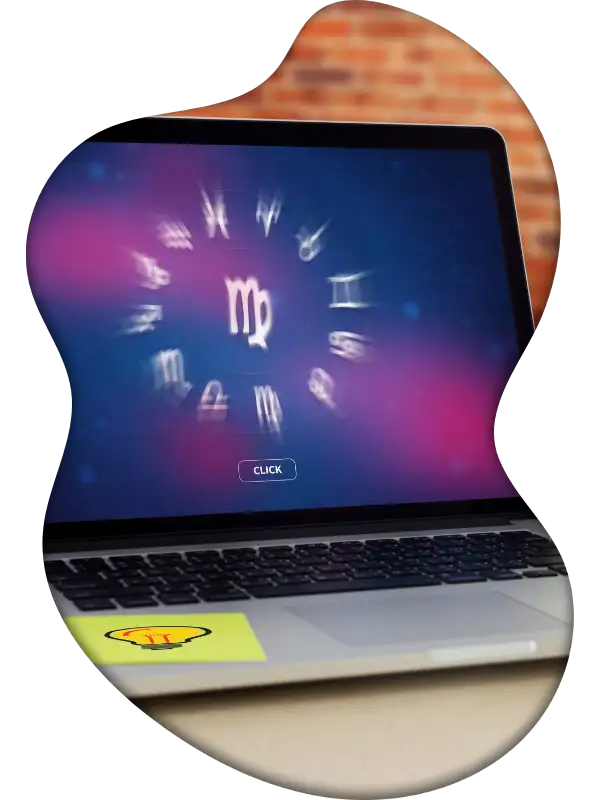You've likely heard that astrology is a way to describe personality or self-discovery through a birth horoscope. In reality, this is not the case. A natal chart doesn't describe personality, and the idea of "my zodiac sign is..." became famous thanks to esoteric journalists in the 20th century.
Now, let's turn to the facts. I will reference the book by historian K. Žilinski, "History of Astrology" [1], which compiles numerous historical facts.
[toc]
The Sumerian Period: State and Personal Yearly Predictions
Scientists found the first written mention of astrology in the library of the Assyrian king Ashurbanipal, where thousands of predictions of specific events from previous millennia were collected in the 7th century BCE. Sumerian scholars, known as "ummânū," used astrology not to describe a person but to foresee the future. Their prophecies mainly concerned the lives of kings and events of state significance.
Historians have found that around the 4th century BCE, the "ummânū" began making astrological predictions for ordinary people. These predictions typically covered the upcoming year, as the Sumerians did not know how to calculate the positions of planets far into the future. However, the predictions were specific, for example: "You will embark on a long journey during which a child will be born."
The Greek Period: The Emergence of Natural Philosophy and Geometry in Astrology
The practice of star predictions that originated with the Sumerians spread throughout the Near East, including Egypt. In the 1st century BCE, it reached Ancient Greece. Until this time, astrology had been empirical: astrologers compared their predictions with actual observations. For instance, Herodotus described the practice of the Egyptians as follows: "They can tell what fate awaits a person based on their birth date. When a sign appears, they record what happens afterward, and if something similar reappears, they believe the outcome will be the same."
Astrology had reached Greece even earlier. Historians know that around 300 BCE, a famous Babylonian astrologer named Berossus arrived on the Greek island of Kos, where he founded a school of astrology and medicine that later taught Hippocrates. Berossus's prophecies were so accurate that, according to Pliny, a statue with a golden tongue was erected in his honor in Athens.
The Greeks, with their developed geometric thinking, quickly created a mathematical system of epicycles, deferents, and the calculation of precession, which allowed them to rectify the positions of stars on the zodiac circle. This gave new momentum to the development of astrology.
It is important to note that astrology in the Greek period was also not related to psychology. It was entirely focused on predictions and explaining the influence of planets within the scientific approach of that time. Vitruvius, in the 1st century, wrote about astrology brought to Greece from the East: "From the astrology and calculations of the Chaldeans, we learned what effect the twelve signs, the Sun, the Moon, and the five planets have on a person's life. This art of prediction rightfully belongs to them; they can learn about past and future events using their astronomical calculations. Many of them, native Chaldeans, left us their discoveries, the results of their insight and scholarship. The first was Berossus, who settled on the island of Kos and taught there, followed by the scholar Antipater, and then Achinapolus."
Astrology was a predictive discipline practiced among philosophers and scholars in Babylon, Egypt, and Greece. Modern esotericism associated with self-realization or the search for purpose was absent.
However, astrological texts indeed reference the connection between the ascending degree of the zodiac and a person's inner inclinations. For example, the Roman astrologer Marcus Manilius described this competently in his poems. However, predictions remained the main focus of astrology.
The Roman Period: The Political Influence of Astrology
From Greece, astrology spread to Rome. Those in power quickly recognized its effectiveness. The first to take note of astrology was Augustus. The historian Suetonius wrote: "In Apollonia, Augustus and Agrippa visited the astrologer Theogenes to learn about their future careers. Agrippa was predicted to have an incredibly fortunate fate, while Augustus, feeling ashamed, was disinclined to reveal his birth time. But when he finally did, Theogenes fell to the ground before him, as if in the presence of the future Emperor of Rome."
When Augustus later became emperor, he surrounded himself with astrologers to utilize their gift of foresight. Astrologers in Ancient Rome became an essential part of political life. Emperors and noblemen hired experienced fortune-tellers to warn them of impending dangers and help plan crucial events.
Tiberius had a habit of testing astrologers by asking them to predict the time of their own death. He would later take pleasure in proving them wrong through a humiliating execution. The Roman historian Tacitus says that the emperor tried to play this trick on the excellent astrologer Thrasyllus during their first meeting: "Thrasyllus, after determining the positions of the stars and their alignments, paused and then showed signs of concern. The more he observed, the more astonishment and fear he expressed. Finally, he exclaimed that a critical and possibly fatal turn of events was imminent for him. Tiberius embraced him, praised him for predicting the imminent danger, and promised that the astrologer would escape it. Thrasyllus became one of Tiberius's closest friends, and his predictions were so accurate that they were considered oracular."
The Decline of Astrology in the West and Its Return 700 Years Later
In the 4th century CE, Emperor Constantine established Christianity as the state religion. He banned astrological predictions under the threat of death to guard the young religion from the opponents, armed with skilled fortune-tellers. This led to the decline of astrology in the West for nearly 700 years while it continued to develop in the East.
Around the 2nd century, Hellenistic astrology reached India, merged with local divination practices, and led to the formation of what is known today as Jyotish.
Around the same time, Hellenistic astrology reached the Sassanid city of Harran. The people of Harran later inspired Islam to consider the teachings of star-based predictions seriously. This led to the establishment of the "House of Wisdom" in Baghdad, where scholars intensively translated Greek scientific works into Arabic.
The Arabs, being excellent mathematicians, enriched astrology with mathematical formulas. In their quest for precise event predictions, they introduced refined formulas for calculating primary directions, tables of great conjunctions and mundane predictions, and schemes of planetary transits to determine exact dates of events. Astrology flourished as a predictive discipline. The great astrologers of that time — Masha'allah, Al-Kindi, Abu Ma'shar, and others — were followers of Aristotle's natural philosophy.
I want to emphasize that the complex mathematical apparatus of astrology was developed for one purpose — to make highly accurate predictions and calculate event dates, not to seek purpose or describe a person's character.
In the 12th-13th centuries, through trade between Europe and the Arab world via Spain, astronomical tables necessary for navigation made their way to Europe. Along with these tables, Arabic numerals, mathematics, and scientific approaches to predicting the future also spread to Europe.
By then, the Church already held supreme power in Europe, so the prediction of events and the predictors themselves no longer threatened it, as they did in Constantine's time. Thus, after nearly 700 years, predictive astrology returned to Europe.
The wave of astrology's popularity at that time is evidenced by the appearance of purely astrological terms in English. For example, "disaster" literally means "something that goes against the stars," implying destruction and loss. "Consider" literally means "to go in harmony with the stars" or "to align with." The word "aspects" as an element of a topic comes from the astrological term aspect, or the sight of the planets, and "venereal diseases" are diseases associated with bodily pleasures, which align with the nature of Venus, and so on.
The Scientific Flourishing of Astrology
In the 15th century, astrology entered the academic realm and became a university discipline. It was taught at Oxford, Cambridge, Bologna, Vienna, and other leading European universities.
In Poland, where I am recording this video, the University of Krakow established a prominent academic department for astrology and mathematics. The professor of astrology was required to make three public predictions each year: one for the university's rectorate, another for the city authorities, and a third for the public. The professor's position was dependent upon the accuracy of these predictions.
With astrology's rapid spread within the academic community, it sparked intense interest among kings and nobles. Much like in Ancient Rome, astrologers began to play active roles in intrigues, wars, and monarchs' political and personal lives. Moreover, many monarchs personally engaged in star-based predictions. During that time, the royal families of France, Italy, Poland, Hungary, and Bohemia kept their copies of "Secretum Secretorum," a book containing predictive techniques, supposedly written by Aristotle and published by Roger Bacon. For example, it includes the phrase: "A monarch shall never rise, sit, eat, drink, or do anything without the counsel of someone knowledgeable in astrology."
French King Charles V was so inspired by astrology that he collected over 100 foundational works on prediction in his library. With the Pope's blessing, he established an astrology college at the University of Paris.
The demands for prediction accuracy steadily increased. Only precise predictions could secure astrologers a good position. Notable examples include John Dee, Jean-Baptiste Morin, William Lilly, and Luca Gaurico.
Luca Gaurico's predictions are well-documented in historical records. He accurately predicted the downfall of Giovanni Bentivoglio, foresaw that Alessandro Farnese would become Pope (who was indeed elected as Pope Paul III), and later predicted the exact date of Farnese's death. Gaurico warned John Hamilton, Archbishop of St. Andrews, that he would end his life on the gallows, which indeed came to pass. Gaurico also predicted that both Medici cousins, Giovanni and Giulio, would become Popes. One became Leo X and the other Clement VII. Gaurico's fame spread throughout Europe, and he spent some time in France at the court of Catherine de' Medici.
William Lilly was renowned in England for his accurate predictions, though he was self-taught in astrology. He predicted the Great Fire of London several times, although he did not specify the exact date. When the fire occurred, Lilly was called twice for questioning by a parliamentary committee.
There is a story about Lilly. When his fish was stolen, he went to the local police station with an astrological chart, claiming he had pinpointed the stolen fish's location— in the cellar of a certain house. Lilly's reputation as a prognosticator was so flawless that he immediately received two constables and a search warrant and went to the indicated house, where the stolen fish was indeed found in the cellar.
Jean-Baptiste Morin made life predictions with precision down to the day. This accuracy in forecasting allowed him to reach the peak of success. His clients included Cardinal Richelieu, Mazarin, Descartes, and Queen Medici. He was awarded a professorship at the Royal College of Paris for his contributions to science and later received a lifetime pension from the French treasury. His students were invited as astrologers by the kings of neighboring countries, also known for their day-precise predictions.
I remember that in the 22nd book of "Gallic Astrology," Morin shows an example of the Polish queen's horoscope. His student predicted that in the specified year and month, the queen would lose her husband Władysław, suffer a severe illness, and marry a new king. After the prediction came true, Morin's student was invited to serve at the Polish queen's court.
At that time, astrologers earned fame and success solely through accurate predictions. Again, I want to emphasize that astrology was an entirely scientific predictive discipline during the Renaissance. Astrologers didn't describe a character, past lives, lessons to learn, or self-realization paths based on a horoscope.
The Decline of Astrology and the Emergence of Modern Astrology
By the late 15th and early 16th centuries, the invention of the printing press led to the widespread distribution of astrological almanacs, capturing the general public’s attention. As demand for cheap, non-scientific astrology grew, more pseudo-prophets appeared, lacking formal education and often being self-taught. Capitalizing on the market demand, they frequently created horoscopes for ordinary people, enriching themselves and discrediting the scientific foundations of astrology.
Soon, the profession of astrologer became associated with tabloid horoscopes, fraud, and manipulation of the naive masses. Against this backdrop, the intellectual elite of the time began to turn away from astrology. Universities excluded predictions from their mathematical departments, and the number of practicing royal astrologers has gradually decreased. By the late 17th century, the predictive part of astrology had passed entirely from universities into the hands of the lower middle class, losing its connection to its scientific and philosophical roots.
By the late 18th and early 19th centuries, rapidly advancing science had discovered electricity, magnetism, and gravity. Critics argued that astrologers could not explain how the stars influence life events within the framework of known physical fields. Additionally, a new method of understanding the world—experimental verification of hypotheses—became a scientific standard.
By the time scientists began to criticize astrology, no educated astrologers left who could explain the influence of stars using the language of mathematics, formulas, and principles of cause-and-effects. No skilled predictive practitioners were left—the last died in Paris in 1659. Earlier astrological works were written in Latin, which had fallen out of use by that time.
The numerous tabloid astrologers, lacking education and knowledge of Aristotle’s natural philosophy, mathematics, and the exact sciences, could not adequately respond to the challenges posed by scientists. Thus, predictive astrology ultimately became associated with superstition and mass manipulation for financial gain.
Tabloid astrology, with its almanacs, promises of miraculous healings, and quick wealth, continued to thrive as a separate low-class phenomenon, exploiting the ignorance and trust of the general public.
As a result, astrology was officially outlawed for the first time in modern history in 1824. However, tabloid astrologers, fleeing persecution, went underground. They continued to consult the masses using fictitious pseudonyms, sending horoscopes by mail.
One of the most successful marketing projects in 19th-century astrology was the work of journalist and esotericist Alan Leo, who created a successful company to popularize esoteric astrology. His company employed several dozen people and had offices in London, Paris, and New York. His esoteric horoscopes, mailed out, were so successful that he was forced to find new ways to offer express consultations.
Thus, the idea of sun signs and describing personality based on zodiac signs was born—an incredibly successful business solution that became widely popular in Europe and America.
Alan Leo’s central idea was that a horoscope is a description of personality, not a precise prediction of events. “Character is destiny,” he wrote. He was taken to court several times for his activities but avoided punishment. Ultimately, he accumulated considerable capital from his astrological project.
Most importantly, he had many followers, and his ideas formed the basis of modern esoteric astrology. When Carl Gustav Jung later attempted to use astrology in the spirit of Alan Leo to describe psychological types, it was enthusiastically received by astrologers of the time. Thus, modern astropsychology was born.
I hope you can learn an important lesson from this video. Astrology has been a scientific (in the spirit of Aristotle’s natural philosophy) predictive discipline for several millennia, reaching its peak in the 15th to 17th centuries when it was a mathematical discipline at leading European universities.
In the 18th century, the predictive part of scientific astrology disappeared from universities’ mathematical departments, leaving behind only pure mathematics and computational astronomy. As predictive astrology fell into the hands of the uneducated class, it lost any connection to its mathematical and scientific roots. It became a tool for tabloid astrologers, who manipulated the ignorant masses for financial gain. From this unfortunate legacy, modern esoteric astrology emerged.
Therefore, my goal as an ex-scientist and a practicing astrologer is to draw the intellectual elite’s attention to astrology’s scientific and mathematical roots and demonstrate the accuracy of predictions made by Renaissance techniques (especially the techniques of Morinus).
- K. Žilinski, History of Astrology, Profit Style, 2007, ISBN 5-98857-074-7


